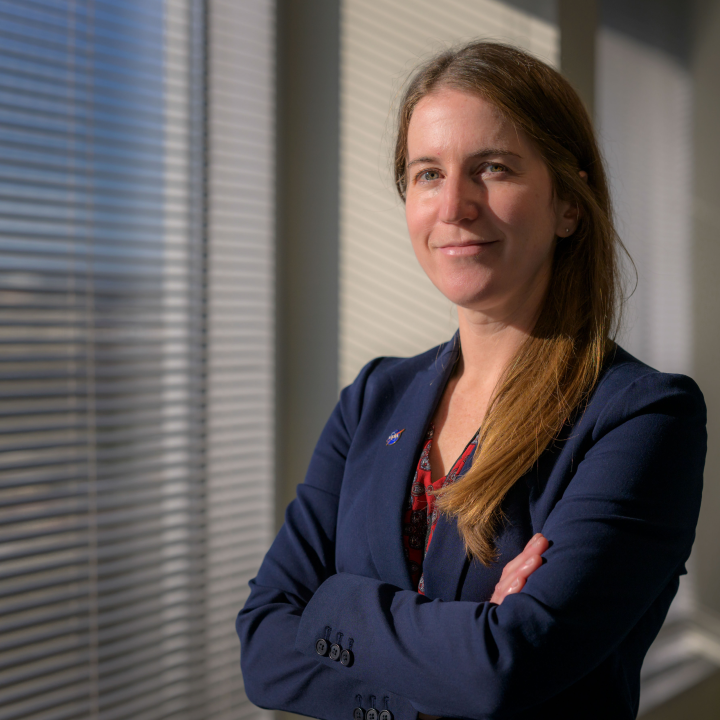NASA Chief Scientist Selected for International Leadership Role
Dr. Kate Calvin, UMD alum (B.S. '03, mathematics; B.S. '03, computer science), NASA’s chief scientist and senior climate advisor, was recently selected as co-chair of a working group on climate change mitigation at the Intergovernmental Panel on Climate Change (IPCC), the United Nations body responsible for assessing the science related to climate change. Previously, Calvin has contributed to five reports by the IPCC.
NASA scientists and researchers have also contributed to previous IPCC assessment reports, and NASA released a sea level projection tool which incorporates sea level projections from IPCC assessments.
The selection means Calvin will help lead the IPCC over the coming five to seven years, building on the progress of previous co-chairs, as the IPCC continues to provide science to help understand climate change.
Here, Calvin answers four questions about her research and work to date, what this selection means and how NASA is contributing to understanding our changing planet.
1. What is the scope and capacity of your role as working group three co-chair? Can you also explain the role of the IPCC?
The IPCC develops reports assessing the scientific literature on climate change. These reports provide a comprehensive assessment of the state of knowledge about climate change.
As co-chair, I, along with my Malaysian counterpart, will lead the Working Group III contribution to the IPCC over the next five to seven years. This includes leading the preparation of the working group's reports in the IPCC’s next assessment cycle and providing guidance to the IPCC on the scientific and technical aspects of its work.
This particular working group focuses on climate mitigation, referring to efforts to reduce or cut greenhouse gas emissions, which can have an effect on future warming. The other working groups focus on physical science and impacts and adaptation.
The Department welcomes comments, suggestions and corrections. Send email to editor [-at-] cs [dot] umd [dot] edu.
